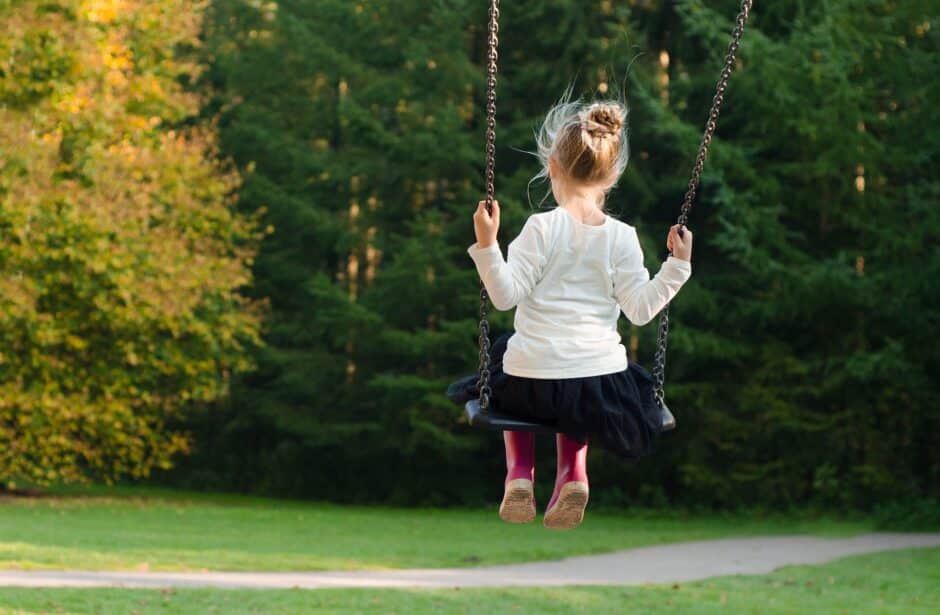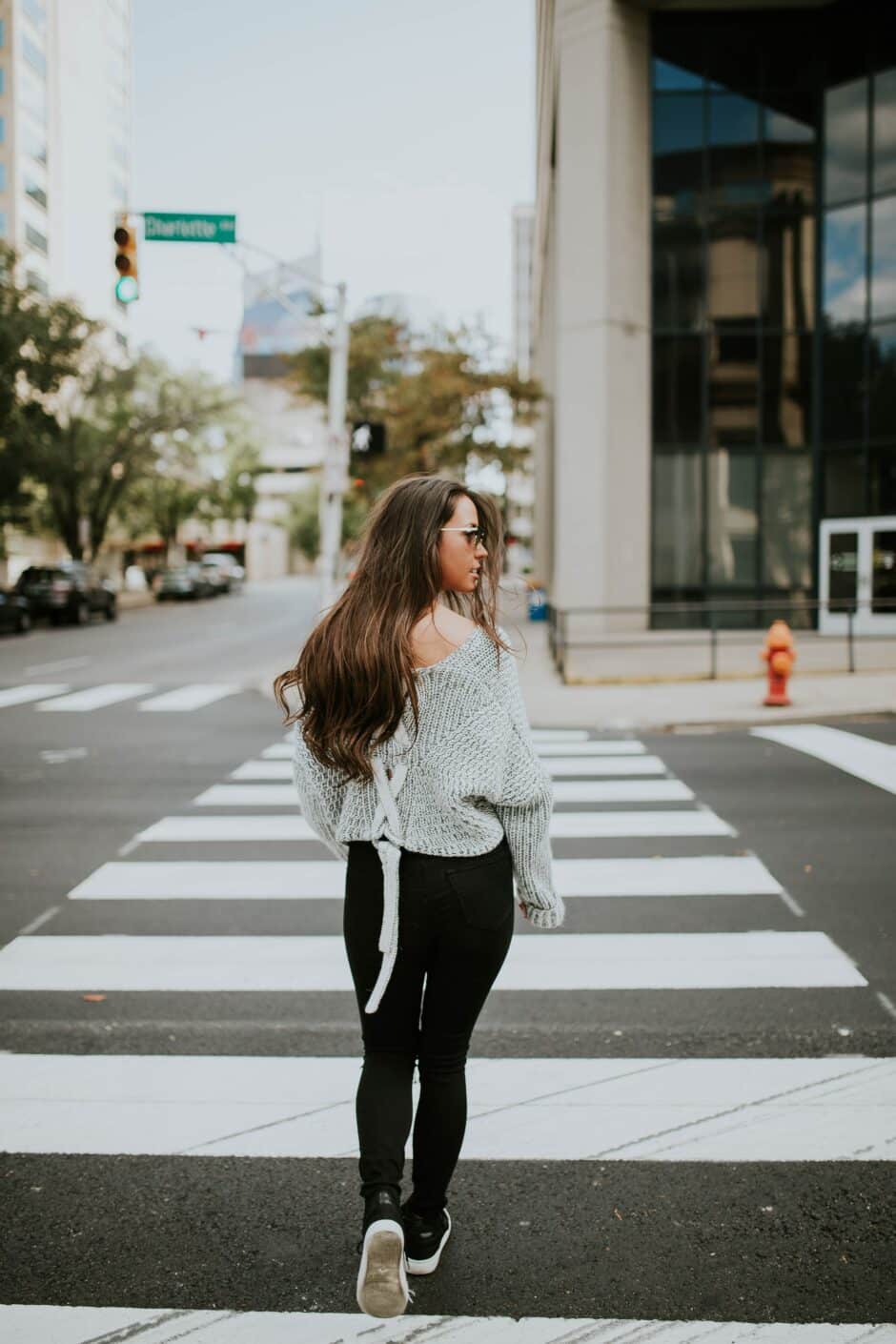I leaned my bike against a rotting tree colored with chalky gray lines and walked along the high blond grass and thick weeds that carpeted the land. With my Nikon, I snapped a shot of the tree. I loved the curiosity that photography unveiled. I had just biked around Lake Waramaug, taking in the sparkling water, the well-manicured lawns and large mansions, the red-painted farmhouses with their attending cows and horses grazing, the empty Adirondack chairs – some wood, some colorful green or red plastic – lounging on the front lawns. The docks that held kayaks, canoes, oars, a trampoline in the water nearby, yellow and purple wildflower fields that held the promise of joy. Everything so pretty and tidy, and then I noticed an old-looking, dilapidated gray wooden barn that stood out in its austerity, its tiredness. It was set back and surrounded by tall grass, but not the ornamental, landscaped kind that grew on some of the other properties. Why was this barn here? Without my camera, I wouldn’t have seen it.
I was finally doing this again: focusing on my photography. I hadn’t taken pictures in years. When I gave birth to my oldest child, I swapped taking candid shots of people and birds in Central Park for close ups of my daughter’s face, her eyes, feet, and hands. It felt more worthy of my time. And I didn’t have to get a sitter. But over time, as my kids grew older, my Nikon gathered dust on the top shelf of the closet, behind my old hats and pocketbooks. Having a free summer without work when my three girls preferred their friends’ company over mine was the perfect opportunity to get back to photography. And David went to work that day; I was finally alone.
I walked along the tall grass that led to the barn. Foxtail grass and dandelions were scattered throughout. I listened to the cicadas sing. I breathed in the scent of honeysuckle and asked myself — for the 100th time— why I never plant them. The barn had a rusty tin roof; I snapped a few shots of it. It was nice to finally dream again. That’s how I felt when I took pictures – like I was in a dream, fully sensing my surroundings without being distracted by my to-do list, my daily worries and concerns.
The door to the barn had a brass padlock that looked ancient. I snapped shots of the padlock and hung the camera’s strap around my neck. I wondered if I should go in.
Snapping pictures reminded me of Brian – Professor Walden. I tried to push him from my mind. Brian was my photography professor from college on whom I had had a crush. He was smart, confident, unabashed. He had tried to give me direction when I was a senior feeling lost with my impending graduation. I knew he liked me, and I was attracted to him. But afraid of him too. He was sure of himself and unafraid. He knew who he was when I was lost. My mind drifted back to that spring afternoon when we reviewed my portfolio. He said how much he liked my photo of a sunset: my favorite photo. I had waited many long minutes for the orange and yellow to blend into a burnt pink. I took hundreds of shots until it was ripe. Just the right pink. I cared. When I had never truly cared about my studies. I studied because it was what you did. I made good grades so I could make good grades, get a good job. Whatever that meant. I just kept going without stopping to think or care. But I loved photography. He saw my work; he got it. When we looked at the photograph together, me leaning in to see it better, he touched my arm as he emphasized the beauty of the photo’s lighting. And he left his hand there. I didn’t want him to move it.
He asked me to join him for a hike in New Paltz the following morning. It was supposed to be a beautiful day. Told me to meet him where he parked his car on Broadway at 9:00 a.m. But my fear took over. It felt like a foregone conclusion. I wasn’t the type to sleep with my professor. I was a straight, good, responsible girl. It was flattering, of course. But really! So I never showed. I stopped visiting him during office hours. After a couple of weeks, I regretted it, but it felt too late. Like I had dimmed a light switch that then became stuck. Now, sometimes when I felt conventional and dull, a typical suburban middle-aged mom, I imagined the scandal we could have caused, my friends reactions, the whispers and stares, my parents shock that I was dating someone their age, the inevitable hurt feelings and insulted egos to the guys my age with whom I hung out. What if I would have just let go and fought the fear? That nauseating lump in my throat that guided most of my decisions. What would have happened? Where would I be? Who would I be?
I approached the barn door, and it dared me to enter. “Real photographers take chances,” Brian had said to me when I marveled at the danger some photographers endured to capture the perfect shot: a tiger’s teeth, the 100 – foot waves in a hurricane, a Colorado avalanche. Now, my life was so safe, hardly risky at all. What types of shots would I capture in my suburban town with its manicured quarter- acre lots?
The padlock was not locked. No voices behind the door. The rough wood splintered my finger as the door creaked open. The barn’s single room smelled musky, mildewed, with a hint of lavender. Light streamed through an open window. A mattress with a single blanket and pillow lay on the floor, and a battery-operated fan and a box of tissues sat next to it. A wooden table and chair stood in the middle of the room. Someone had placed a bowl of blueberries on the table. I took several shots of the blueberries’ cloudy coating, a close up of the grains of wood on the table.
To be behind the lens – to be the one looking out – also jived with my new sense of being unseen, invisible. Over the last couple of years, my attractiveness had faded. First with the few gray hairs that sprouted at my roots, shining with their defiance. Then, slowly with the extra weight I put on around my stomach, despite my daily exercise. But it really hit me when I stopped getting catcalls while walking in Manhattan past construction crews. A final hit of reality came when my male students looked right past me without the slightest bit of flicker in their eyes. That was a big change from my early teaching days when one of my students casually placed a DVD of “The Graduate,” at the edge of his desk on top of his textbook, daring me to acknowledge it. When I would keep my door open during conferences with male students just in case. At first this change sucked. I didn’t know who I was without my looks – something that had been a big part of my identity since I was about thirteen. Not until my beauty dissipated did I realize how men had favored me and treated me well. From the clerks at the checkout counter to my colleagues at work to the dads from my kids’ soccer games. But a part of me embraced this shift. Liberated and safe, I could do whatever I wanted without asking for trouble, being a tease, leading someone on. I was almost invisible in this new identity.
I sat on the floor and leaned against the wall, the silence enveloping me. Nowhere to go. Nothing to do. The sun hit my chest and warmed me. A peacefulness settled. I could stay there forever. There were berries and a place to sleep, shelter should it rain. Who lived here? I couldn’t remember the last time I just sat and listened. Always running. . . . I drifted off to sleep.
“Who are you?!” I jumped from surprise, and my heart raced. I stood up.
A man stood above me. His brown, grayish hair was long, hanging until his chin. He was barefoot and wore a white undershirt and blue jeans.
“I’m Janet. Janet. I was biking around the area, taking photographs, and was curious about the farm, I mean the barn.”
“Well, I live here,” he said as he sat on a lawn chair in the corner of the room. He took a leash off a white fluffy dog, who approached me and began to sniff my groin. I pushed her away.
“I’m sorry. To have just come in.” I fidgeted with my watch. I looked back at the door, ready to dart out. But my legs didn’t follow.
I noticed there was an Atlantic magazine on the floor near the chair. He wore black wire reading glasses. I stared at him for a minute and felt calm in his presence even though I should have been afraid. For some reason, I was not, just intrigued. Who was he? How on earth did he pull this off? There were several books on the floor next to his chair. A biography on FDR, a collection of works by William Faulkner, a “Spanish for Dummies.” Several newspapers also rested on the floor, a Litchfield Review’, a N.Y. Times. The pages looked puffy, like they had been leafed through, touched, read, and reread. Next to the newspapers was a battery-operated radio. There were no outlets, lamps or other sign of electricity.
“I’m . . . I’m Janet Sullivan. From Westchester. I love the area and was biking around. I used to . . . rent a house here in the summer when I lived in the city.” I was talking too fast, sounding too guilty.
“You mean Manhattan?”
“Yes,” I laughed.
“Why do we all do that, call Manhattan the city, like there are no others?”
“Yeah, I guess that’s true. Um . . . Did you spend time in the city?,” I asked.
“I didn’t spend my entire life in this dilapidated barn if that’s what you’re asking me.”
“No, I didn’t mean. . . ,” My palms felt damp.
“I did live in Manhattan for five years, then it got too expensive for me, so. . . “ he shrugged.
“Yes, us too.” I forced a laugh.
“You have a family?”
“Yes, I’m married with three kids.”
“Nice. That’s the right thing to be when you’re young.”
Another forced laugh.
“Take a seat,” he said and pointed to a folding chair next to him.
Sitting felt like too much. I glanced at the door, and I knew I could just walk out, get on my bike, and never come back to this place again. But the danger enticed me, made me dizzy.
“Seriously. Make yourself comfortable.”
The tone of his voice—daring me to just let go—reminded me of Brian. I was back on a field trip my photography class took to an urban farm where they grew citrus fruits. There were ripe lemons and limes at the near part of the garden, and the group of students all took close-ups of them. I noticed a single small, blooming, bright orange on a tree at the far side of the garden.
“Go ahead. Focus on what catches your eye, on what attracts you the most,” Brian said.
There was no clear path to the orange tree, and tractors were parked in front of it, blocking my chance for a close-up.
“But, how—”
“Just try to get as close as you can then zoom in on it.”
I walked ahead, scratching my legs against the tall vines. I jumped over some shovels, stopped just in front of the tractors, and zoomed in on the stray dangling orange burst. It was the best photograph I’d ever taken.
Now, the metal seat felt cold against my butt. I didn’t know what to do with my hands.
“What do you do?” I wished I hadn’t asked that. I didn’t even care.
“Well, I was a lawyer for many years, and now I’m reading and walking and not spending money, but existing. I robbed a bank a while ago, so I have enough money.” He folded his arms.
I studied his face. He wasn’t smiling, and he looked me in the eyes.
“You’re kidding.”
“No. How about you?”
“I’m a teacher. Sixth Grade.”
“Well, that’s noble.”
I couldn’t imagine him with a past or a future. He just was. He had deep laugh lines around his eyes and wrinkles around his mouth. His hair looked a little greasy and his clothes looked soft and faded, like they had been washed hundreds of times. He had light blue eyes.
“Want to take a walk? My dog needs lots of exercise or she gets restless and jumpy.”
I recalled my failure of nerve with Professor Walden. The nagging regret.
“That would be great.”
His dog was resting on her belly, her paws spread out in front of her. She looked at me, and I smiled at her and looked away. When I glanced back, she was still looking at me.
“I’m Jon.” He put out his hand to shake mine. His hand was rough and warm.
He got up and put the leash on the dog. I followed him outside the back of the house to the yard that led to a path in the woods. It felt like a dream, an alternate world I had created only in my mind. Despite the shade from the trees, the path grew lighter. Colors were brighter: the yellow dandelions looked neon; the pale blue sky was now turquoise.
We walked along the path, the dog sniffing something on the ground every couple of yards. After a few minutes of silence, I aimed my camera to snap a shot of Jon against the backdrop of these bright woods.
“Hey! What are you doing? Stop that. I don’t want anyone taking my picture.”
I jumped from his shout and awoke from my dream. The colors faded.
“Let me ask you something. How did you get the guts to just barge into an empty house?”
“I’m sorry. I didn’t . . . ”
“I guess you felt it couldn’t matter too much. Nobody too threatening can be in a dilapidated house. Not in this neighborhood with its fancy homes and lawns.”
Something inside me said to run. But Jon smiled at me, and it didn’t feel like a threat. His blue eyes were kind, the eyes of someone who might appear to be brusque, but was good inside.
“Listen, honey. You don’t know me. But you took a risk.”
“I guess I did,” I said as I forced a smile.
He spoke louder. “You sure as hell did. There are crazies everywhere you turn. But you weren’t afraid. You burst into my house.”
Should I leave? Was I dramatic in thinking I might be in trouble?
“So, what are you looking for? Most people don’t just do what you did. What’s missing in your life?”
He stopped and stared at me. I’ve seen many movies where you want to scream at the stupid girl to run away. But I wasn’t afraid. I could stay with him in the woods forever and be okay. I wasn’t attracted to him, but I wanted to be near him. He was the alternate door, the one I usually avoided. And who knew what was beyond this door? How much adventure and excitement I might have been avoiding all this time?
“Maybe purpose, meaning. I feel . . . less relevant.”
“Why?”
“My kids are growing up fast. They don’t need me so much anymore.”
“Why does that matter? Being needed sounds like a burden to me.”
I thought about that question. Why does it matter? Why does being needed feel so satisfying? Why, when I think back to when my girls were little, all the snotty noses, dirty diapers, and tear-streaked faces, do I feel so tender towards my children and my old role? Full and content. Now, an emptiness.
“I don’t know . . . I guess it’s been my role for a while. Part of my identity. And I’m getting old. I feel I’m changing.”
“A reverse metamorphosis? . . . But look where you are!” He waved his arms up and around.
The smell of wet leaves filled my nostrils. Tiny bugs flew in front of my face, and it was cooler in the woods. Damp. No passing cars or voices. It was a silence I had not heard in so long. The absence of noise like cell phone notifications, phone rings, the humming of air conditioning, distant trucks, beeping cars, sirens. I was finally away from it all. I just was. I was simply existing.
He stepped closer, and a crooked grin spread on his face, enhancing the deep wrinkles in his cheeks. A nakedness in his eyes made him look lost. I wanted to hug him.
He leaned into me and kissed my lips, mouth closed, his lips like peeling paint, like he needed to put on Vaseline. His scruff felt like steel wool against my sensitive skin. Still, I told myself, this is happening, I’m kissing another man. I really wanted to be into it, aroused. But I wasn’t. It was just awkward, kissing this old, washed-up guy in the middle of nowhere.
My husband David didn’t even glance away from the T.V. or his phone when I undressed at night. He hadn’t initiated sex in months.
“You are a beautiful woman. You ought to know that.”
He moved a strand of hair out of my eyes. It all felt like a movie or a soap opera. But a bad one that you fall asleep to. I felt I could almost laugh aloud at the predictability of his comments.
“What a gift you are. What a nice surprise,” he continued.
I wanted to leave right then. I felt nothing, but a little repulsion mixed with a tiny bit of flattery.
I forced a smile. “Thank you.”
“Are you okay? You seem . . . not.”
“No. I am. Just . . . I’m wondering if I should call home and check in.” I started to take my phone out of my leggings’ pocket.
“Well, you won’t get cell service here.” He laughed.
He stroked my cheek with his warm hands, and it comforted me, like everything was going to be okay. He smelled surprisingly nice. Like soap.
He tried to kiss me again, but I flinched.
“What’s happening here?”
“I don’t know. Let’s just . . . . I’m just getting tired. That’s all.”
He sighed and shrugged. The birds chirped around us. He looked up at the trees, the sky.
And then, with an abundance of energy and some resolve, he spoke with what sounded like forced good cheer.
“Okay, well, let’s pick berries. You can take some home with you. A souvenir of your day. Your detour from the grind.” He patted my arm.
I followed him. “Okay, great. Thanks. Um. . . how do you know which berries are edible and not poisonous?”
“By the color and surrounding plants. These are okay,” he said and pointed to a nearby bush with small red berries.
I picked a berry off and put it in my mouth. It tasted tart, maybe a bit unripe.
“Good?”
“Yes.”
He looked at me as if he was daring me to eat more. I picked a few more berries and popped them in my mouth. He laughed aloud.
“What’s funny?” I asked.
“Life. This. You woke up today not knowing you’d be snacking on berries with a stranger and his dog in the woods. And you’re here. Aint life grand?”
We walked in silence for a few minutes. I followed his lead. It was so quiet, nothing but the sound of our sneakers hitting the ground. Some birds chirping.
“So, do you like living out here?”
“Yes, I do. That’s why I’m here.” He turned around and smiled, but not kindly.
“It’s peaceful, free. Incredible really,” I said.
“It is, isn’t it?” Something had shifted.
“Yeah, no burdens or responsibilities,” I added.
My stomach felt queasy, and I was dizzy. Sweat dripped down my forehead. As we walked, I tried not to focus on the rumbling in my stomach, the nausea. But it quickly became unbearable.
“I feel like I’m about to throw up. I’m going to find a private spot.” It was hard to get the words out.
“Ah, sure. We’ll promise not to peek,” he said with a wink.
I ran ahead and vomited behind a bush. The berries came up in a red paste. Again. I fell to the ground. I heard light steps approaching. The dog was running toward me, barking, like it was trying to tell me something. I wanted privacy and still felt nauseous. I wasn’t yet done. But I pulled myself up and followed the dog.
Jon was laying off the path with his eyes closed, resting his hands against the back of his head.
“Peaceful out here,” he said. “Your stomach still bothering you?” There was an edge to his voice.
“Yes.”
“It’s probably just the berries. I thought they were okay, but I may have been wrong.”
“What?”
He looked at me sharply. “Don’t worry about it. Worst case, you’ll keep vomiting it out. This will pass.”
“Shit. You said the berries were fine!”
“I know. I thought so. They might be. Now I’m a little tired. Just like you.” He winked at me and smiled as he closed his eyes.
A hot wave of nausea hit me, and my face burned. I needed a cold compress, like I used to give my girls when they were sick. They would lay there with the washcloth on their heads as I held their hands. So precious when they were little. Their skin and hair so soft, their eyes wide. Couldn’t get enough of me. The light broke through the trees, and I noticed how beautiful it looked hitting the green leaf, how the leaf turned light, like a piece of lime. I lay down and rested my head on a nearby tree stump to admire the light some more. The light flickered in and out, and each time the leaves brightened up from the sun, so beautiful. I told myself to hold onto this moment and remember it. It kept flickering. I drifted off to sleep, mesmerized by the lime.
Then footsteps on the fallen leaves near me.
“Sweet Dreams.” It sounded like Jon.
Wait, I wanted to say. But I was too weak to speak.
A dog barking, more lime, churning stomach. Dog barking louder. Louder. The footsteps moved further away.
My body was limp and the acid from the vomit burned my throat. I could fall asleep and disappear, feel nothing forever. I lay there, my stomach gurgling, my heart pounding. I stared at the limelight. And then I smelled the tree stump against which my head rested. Wood mixed with soil. The smell of Time.
They say the rings in the bark of a tree tell its age. The thick tree stump that supported my head had witnessed generations of people, their joys and woes. Thunderstorms and droughts. Its thickness was its strength. I had to get thicker. I was not done. I willed my gurgling stomach to stop. I had to stand up to get thicker.
First, I sat up and stared at the top of the trees to steady myself. I couldn’t be too far into the woods. I only had to get to the street, flag down a car, get reception on my phone to call for help. My camera—I must have taken it off before laying down—was on the ground just out of my reach. It suddenly appeared much larger than it had been, and its metal glittered in the sun. I leaned forward and grabbed it with all the strength I could muster. I dragged myself up and shuffled to the direction of the barn. I worried Jon would see me, but it was the only way I knew to get out. My legs moved ahead without asking for my permission. My reliable, thickening body would get me out of here. My legs that walked three miles a day, that drove me here and then biked here, my stomach that nourished me, my womb that carried my babies, my breasts that fed them, my hands that gripped and grabbed and wrote and held and carried and worked and played. My body would get me out of here. Back to Time.
Tamar Gribetz’s short stories have appeared in The Hunger, Rumble Fish Quarterly, Poetica Magazine, and Manifest Station. Tamar teaches writing and advocacy at Pace Law, where she also serves as the Writing Specialist. She lives in Westchester, New York, where she is at work on other short fiction and a novel.
***
Have you ordered Thrust yet?

“Blistering and visionary . . . This is the author’s best yet.” —Publishers Weekly (starred review)
***





